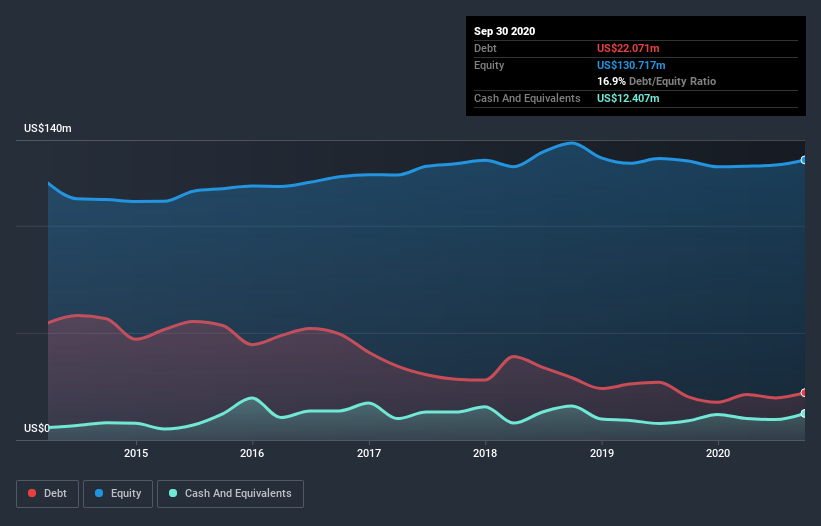
Legendary fund manager Li Lu (who Charlie Munger backed) once said, 'The biggest investment risk is not the volatility of prices, but whether you will suffer a permanent loss of capital.' So it seems the smart money knows that debt - which is usually involved in bankruptcies - is a very important factor, when you assess how risky a company is. We note that Gan Shmuel Foods Ltd. (TLV:GSFI) does have debt on its balance sheet. But the more important question is: how much risk is that debt creating?
What Risk Does Debt Bring?
Debt and other liabilities become risky for a business when it cannot easily fulfill those obligations, either with free cash flow or by raising capital at an attractive price. Part and parcel of capitalism is the process of 'creative destruction' where failed businesses are mercilessly liquidated by their bankers. However, a more usual (but still expensive) situation is where a company must dilute shareholders at a cheap share price simply to get debt under control. By replacing dilution, though, debt can be an extremely good tool for businesses that need capital to invest in growth at high rates of return. The first thing to do when considering how much debt a business uses is to look at its cash and debt together.
Check out our latest analysis for Gan Shmuel Foods
What Is Gan Shmuel Foods's Debt?
The image below, which you can click on for greater detail, shows that at September 2020 Gan Shmuel Foods had debt of US$22.1m, up from US$20.1m in one year. However, it does have US$12.4m in cash offsetting this, leading to net debt of about US$9.66m.

A Look At Gan Shmuel Foods' Liabilities
According to the last reported balance sheet, Gan Shmuel Foods had liabilities of US$37.0m due within 12 months, and liabilities of US$43.4m due beyond 12 months. Offsetting these obligations, it had cash of US$12.4m as well as receivables valued at US$46.2m due within 12 months. So its liabilities outweigh the sum of its cash and (near-term) receivables by US$21.8m.
This deficit isn't so bad because Gan Shmuel Foods is worth US$89.7m, and thus could probably raise enough capital to shore up its balance sheet, if the need arose. However, it is still worthwhile taking a close look at its ability to pay off debt. When analysing debt levels, the balance sheet is the obvious place to start. But it is Gan Shmuel Foods's earnings that will influence how the balance sheet holds up in the future. So when considering debt, it's definitely worth looking at the earnings trend. Click here for an interactive snapshot.
Over 12 months, Gan Shmuel Foods made a loss at the EBIT level, and saw its revenue drop to US$190m, which is a fall of 12%. That's not what we would hope to see.
Caveat Emptor
Not only did Gan Shmuel Foods's revenue slip over the last twelve months, but it also produced negative earnings before interest and tax (EBIT). Indeed, it lost US$397k at the EBIT level. When we look at that and recall the liabilities on its balance sheet, relative to cash, it seems unwise to us for the company to have any debt. So we think its balance sheet is a little strained, though not beyond repair. On the bright side, we note that trailing twelve month EBIT is worse than the free cash flow of US$5.9m and the profit of US$433k. So if we focus on those metrics there seems to be a chance the company will manage its debt without much trouble. There's no doubt that we learn most about debt from the balance sheet. But ultimately, every company can contain risks that exist outside of the balance sheet. We've identified 5 warning signs with Gan Shmuel Foods (at least 1 which doesn't sit too well with us) , and understanding them should be part of your investment process.
At the end of the day, it's often better to focus on companies that are free from net debt. You can access our special list of such companies (all with a track record of profit growth). It's free.
If you’re looking to trade Gan Shmuel Foods, open an account with the lowest-cost* platform trusted by professionals, Interactive Brokers. Their clients from over 200 countries and territories trade stocks, options, futures, forex, bonds and funds worldwide from a single integrated account. Promoted
New: Manage All Your Stock Portfolios in One Place
We've created the ultimate portfolio companion for stock investors, and it's free.
• Connect an unlimited number of Portfolios and see your total in one currency
• Be alerted to new Warning Signs or Risks via email or mobile
• Track the Fair Value of your stocks
This article by Simply Wall St is general in nature. It does not constitute a recommendation to buy or sell any stock, and does not take account of your objectives, or your financial situation. We aim to bring you long-term focused analysis driven by fundamental data. Note that our analysis may not factor in the latest price-sensitive company announcements or qualitative material. Simply Wall St has no position in any stocks mentioned.
*Interactive Brokers Rated Lowest Cost Broker by StockBrokers.com Annual Online Review 2020
Have feedback on this article? Concerned about the content? Get in touch with us directly. Alternatively, email editorial-team (at) simplywallst.com.
About TASE:GSFI
Gan Shmuel Foods
Produces, markets, and sells citrus fruit, tomato, and other non-citrus fruit products in Israel.
Outstanding track record with flawless balance sheet and pays a dividend.
Market Insights
Community Narratives



